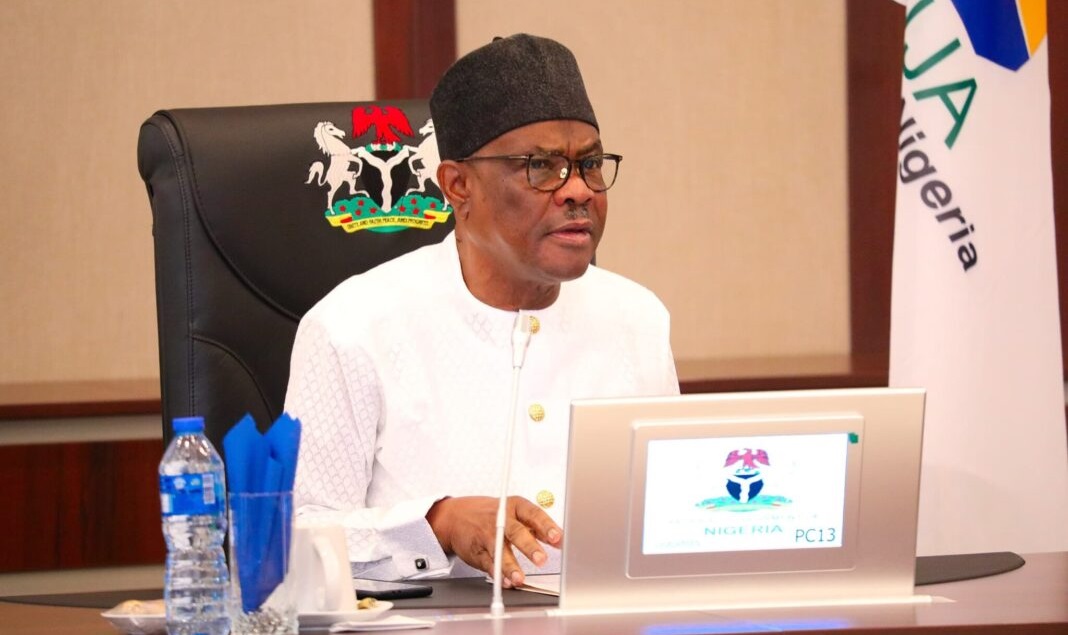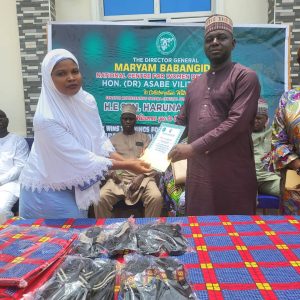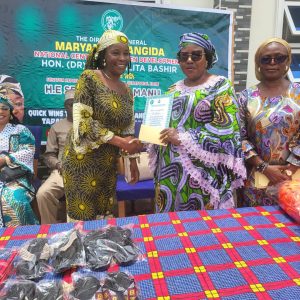News
EU, Germany invest €17.9 million to boost renewable energy in Nigeria

* 154,000 Nigerians to have access to power
The European Union (EU) and the German Government, have announced a €17.9milion investment on renewable energy, energy efficiency and rural electrification in Nigeria,
The funding cane on Thursday at the official launching of the the third phase of the Nigerian Energy Support Programme (NESP), geared towards
boosting private sector investments in clean, efficient, and reliable energy solutions across the country.
Naijablitznews recalls that the NESP was first launched in 2013, as a technical support programme co-funded by the EU and Germany’s Federal Ministry for Economic Cooperation and Development (BMZ).
The programme is implemented by Deutsche Gesellschaft für Internationale Zusammenarbeit (GIZ) in collaboration with Nigeria’s Federal Ministry of Power (FMP) to build an accessible and sustainable energy landscape in Nigeria.
Under the third phase ( NESP3), 154,000 people are expected to have new or improved access to electricity while 30,000 people will have access to Liquified Petroleum Gas (LPG) for clean cooking, among others.
Permanent Secretary, Federal Ministry of Power, Mahmuda Mamman, who flagged off the activities marking the commencement of NESP3 in Abuja, said that the programme would build on the achievements of NESP II by attracting more investments in renewable energy and energy efficiency as well as support towards the objectives of Nigeria’s Electricity Act 2013.
Mamman lauded the EU and German government for their support to Nigeria especially for ensuring energy security in the most affordable and sustainable manner.
Head of Green and Digital Economy at the EU Delegation to Nigeria, Inga Stefanowicz, stressed the EU’s dedication to Nigeria’s energy security. “A cleaner energy future requires commitment from all stakeholders, this new phase continues to support renewable growth and the development of innovative models, like electricity franchising, that will bolster reliable power for beneficiaries,” she said.
German Deputy Ambassador, Johannes Lehne, reaffirmed Germany’s support, and outlined the essential role of renewable technologies in Nigeria’s energy transition.
He noted that investments in renewable energy and energy efficiency are key to diversifying Nigeria’s energy mix and advancing decarbonisation goals outlined in the Energy Transition Plan (ETP).
Head of NESP, Duke Benjamin, also stressed that collaboration with public and private stakeholders will be critical in achieving the programme goals.
“The 3rd phase aims to bring sustainable energy solutions to rural communities, healthcare facilities, and businesses, ensuring energy access that drives growth and improves quality of life in Nigeria,” he stated.
News
Pope Francis finally laid to rest

Pope Francis was buried inside his favourite Rome church after a funeral mass in St Peter’s Square, the Vatican said on Saturday.
Francis who died on Monday aged 88, was laid to rest during a 30-minute ceremony which started at 1:00 pm (1100 GMT) at the Santa Maria Maggiore basilica in the Italian capital.
Footage shared by the Holy See showed cardinals marking his wooden and zinc coffin with red wax seals.
Cardinal Kevin Farrell, who as camerlengo is running the Vatican’s day-to-day affairs until a new pope is elected, sprinkled it with holy water after it was lowered into a tomb set inside an alcove.
A reproduction of the pectoral cross worn by Francis during his lifetime hung above it.
Francis had asked that the tomb, located near the altar of Saint Francis, be simple and unadorned, reflecting the humble spirit of his papacy.
The tombstone bears only the inscription “Franciscus” — the pope’s name in Latin.
Its marble is sourced from Liguria, the northwestern Italian region once home to the Argentine pontiff’s Italian ancestors.
Francis, born Jorge Bergoglio, had specified in his will the exact spot he wanted to be buried, in the side nave of the beloved fifth-century AD church.
The pontiff was devoted to the worship of the Virgin Mary and made a point of praying in Santa Maria Maggiore before leaving on trips abroad and upon his return to Rome.
He declared his desire to be entombed there in 2023.
Located in the heart of Rome, the basilica already holds the tombs of seven popes.
But the last one to be buried there was Clement IX in 1669. More recently, popes have usually been buried in St Peter’s Basilica.
One of four papal basilicas in Rome, Santa Maria Maggiore also holds the remains of several other renowned figures, such as the architect and sculptor Gian Lorenzo Bernini, who designed St Peter’s Square and its surrounding columns.
News
Just in: Gunmen invade pro-Wike group in Bayelsa

Gunmen suspected to be hired political thugs disrupted a rally organised in support of Minister of the Federal Capital Territory, Nyesom Wike, on Saturday in Yenagoa, Bayelsa State.
The event, which also marked the inauguration of the NEW Associates group, was meant to thank President Bola Tinubu for appointing sons and daughters of Bayelsa into positions in his administration, while also showing support for Wike, who serves as the group’s grand patron.
Originally scheduled for April 12, the rally had been postponed to April 26 after another group, supporters of Governor Douye Diri, booked the same venue and date for their own rally.
Although both groups eventually rescheduled, tensions remained high.
Supporters of NEW Associates had gathered early at the Church of God Mission Camp, ready for the event, when armed men suddenly emerged from nearby creeks and bushes, firing gunshots into the air.
The crowd quickly scattered in fear, while security forces including the Nigeria Police, the Nigeria Security and Civil Defence Corps (NSCDC), and the Department of State Services (DSS) responded by pushing back the attackers and searching the surrounding area to prevent further violence.
After the incident, Comrade Ebilade Ekerefe, Secretary of NEW Associates and former spokesperson of the Ijaw Youths Council, accused the state government of trying to disrupt their peaceful gathering.
He insisted the rally would go on, stating that their intention was simply to express gratitude to the President and show solidarity, and questioned why anyone would feel threatened by such an event.
Similarly, Dr Pabara Igwele, the immediate past Commissioner of Health in Bayelsa, described the rally as peaceful and blamed the disruption on political motives.
He also vowed that the rally would continue despite the attack.
After the initial chaos, supporters regrouped to carry on with the event.
News
Senator Manu Haruna Launches Quick Wins Training for Women and Youths in Taraba Central Senatorial District+Photos

Senator Manu Haruna of the Taraba Central Senatorial District on Saturday concluded a three-day Quick Wins Training program dedicated to empowering women and youths in the District .
The event took place in Jalingo, the capital city of Taraba State, in collaboration with the Maryam Babangida National Centre for Women Development.
The training initiative is aimed to equip participants with practical skills and knowledge that can foster economic independence and stimulate community development. This program is a reflection of Senator Haruna’s commitment to improving the socio-economic status of underrepresented groups within his constituency.
The event was attended by prominent leaders, including Hon. Veronica Alhassan, Member of the House of Assembly for Bali I Constituency, and Hon. Alhassan Hamman, who presented certificates to participants on behalf of Senator Manu Haruna.
The involvement of critical stakeholders underscored the importance of collaboration between government officials and community leaders in driving sustained progress in Taraba Central.
Among the distinguished attendees were Hon. Ubale Gambo, Hon. Bala Baba, Alhaji Muhammad Nagaggo, Alhaji Raubilu Umar, among others, all of whom are dedicated to fostering development within the region.
Senator Manu Haruna expressed his gratitude to the National Centre for Women Development and all partners involved in the initiative.
He stressed the transformative potential of empowering women and youths, noting the necessity for continued support and resources to ensure sustainable growth in Taraba State.
This Quick Wins Training is poised to have a long-lasting impact on participants, equipping them with essential skills to make valuable contributions to their communities and the broader economy of Taraba State. By investing in the future of these underprivileged groups, the program seeks to inspire change and promote self-sufficiency among the local populace.
-

 News22 hours ago
News22 hours agoAkpabio arrives Vatican ahead Pope’s funeral
-

 News16 hours ago
News16 hours agoList of World Leaders that are present in the final funeral of Pope Francis
-

 News11 hours ago
News11 hours agoJust in: Gunmen invade pro-Wike group in Bayelsa
-

 News20 hours ago
News20 hours agoDefections: Teejay Yusuf traces genesis of PDP palaver, key issues affecting Nigeria’s largest opposition party
-

 News21 hours ago
News21 hours agoCBEX: EFCC declares four persons wanted over crypto fraud + photos
-

 News16 hours ago
News16 hours ago2Face estranged wife, Annie Macauley breaks silence after he married Natasha
-

 News21 hours ago
News21 hours agoScandal! Osun monarch, pastor admit to COVID-19 fraud in US
-

 Politics19 hours ago
Politics19 hours agoUgochinyere remains Nigeria’s number one Hushpuppi of politics-Olayinka carpets Imo Rep




















